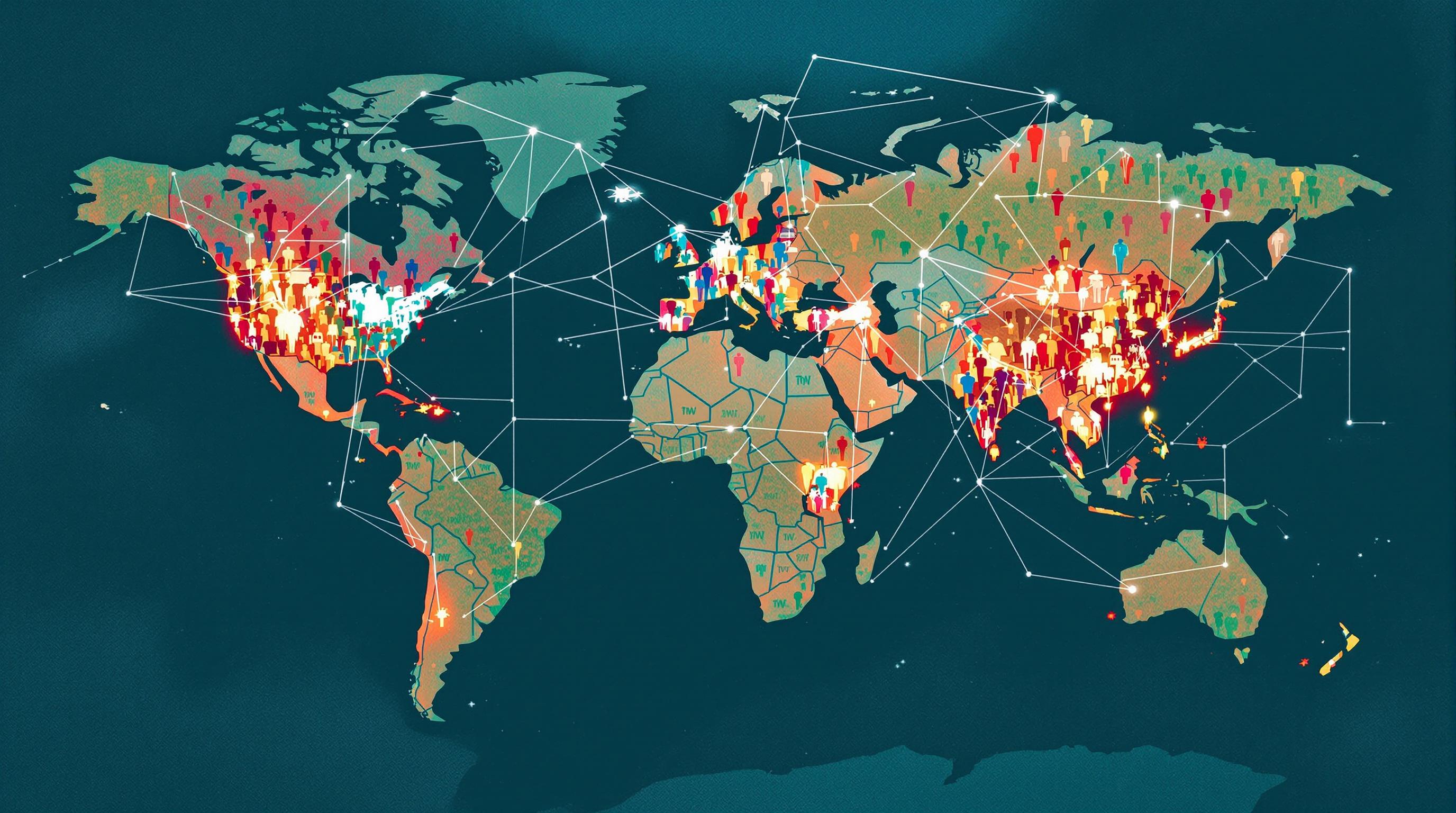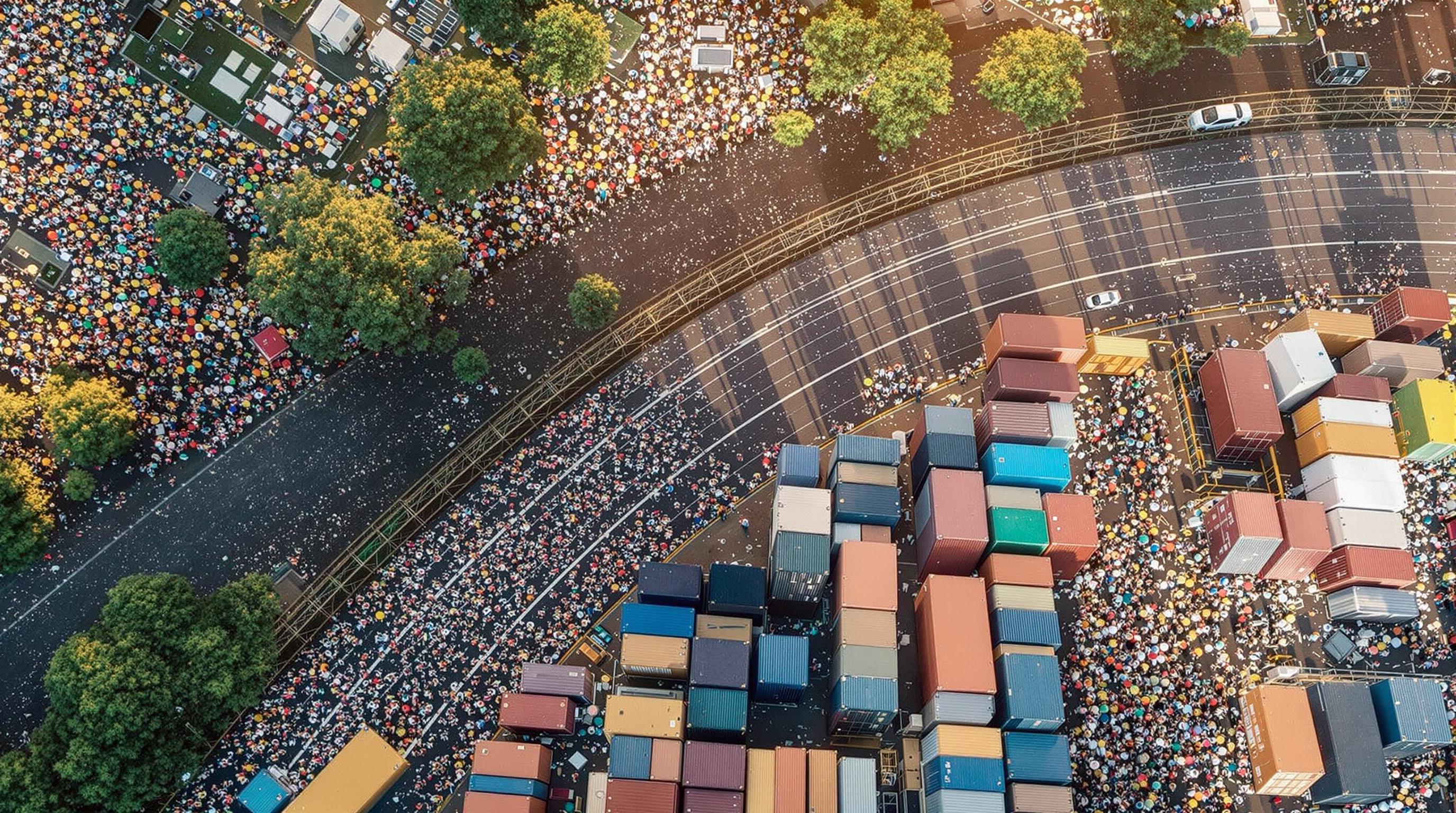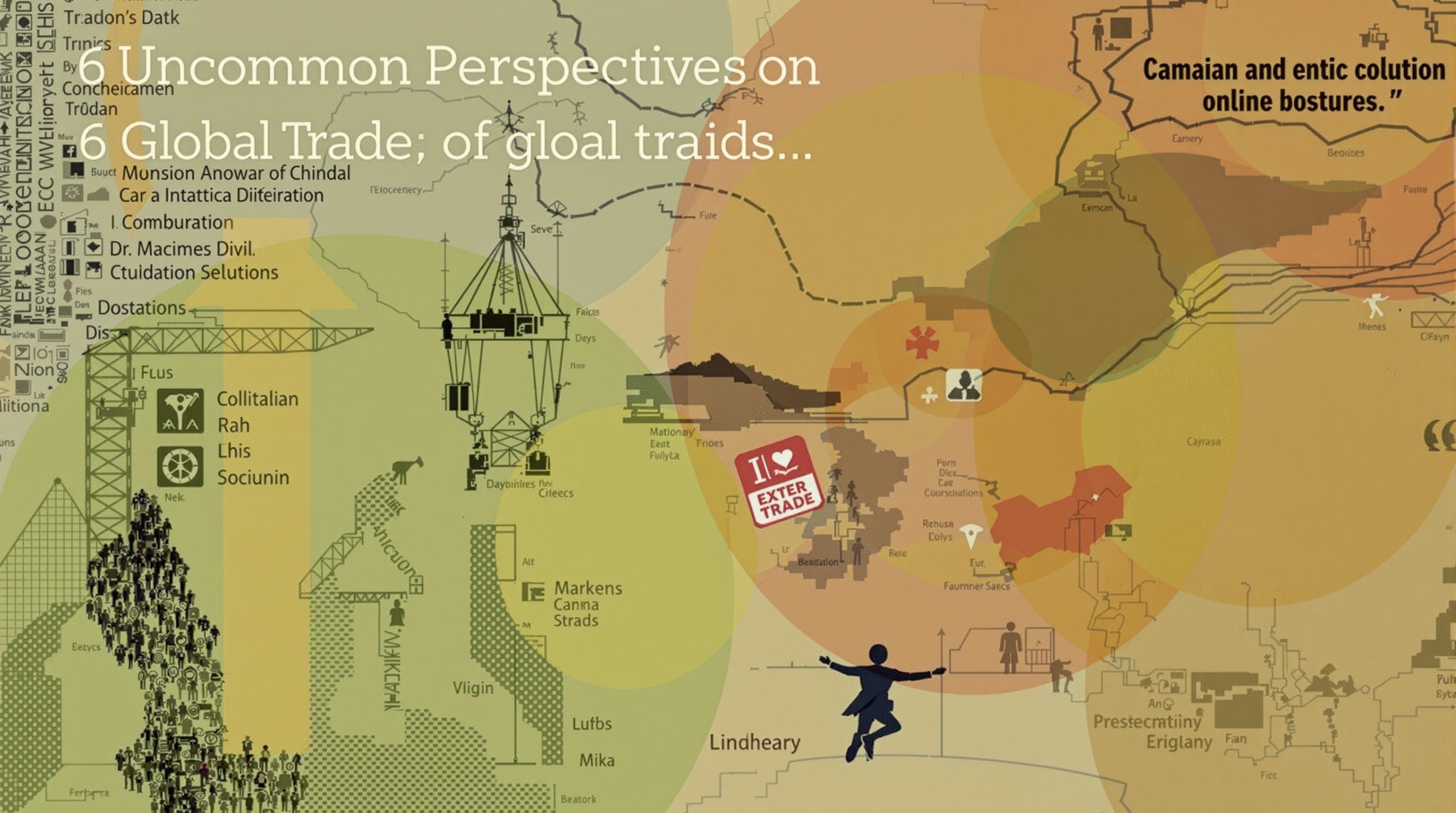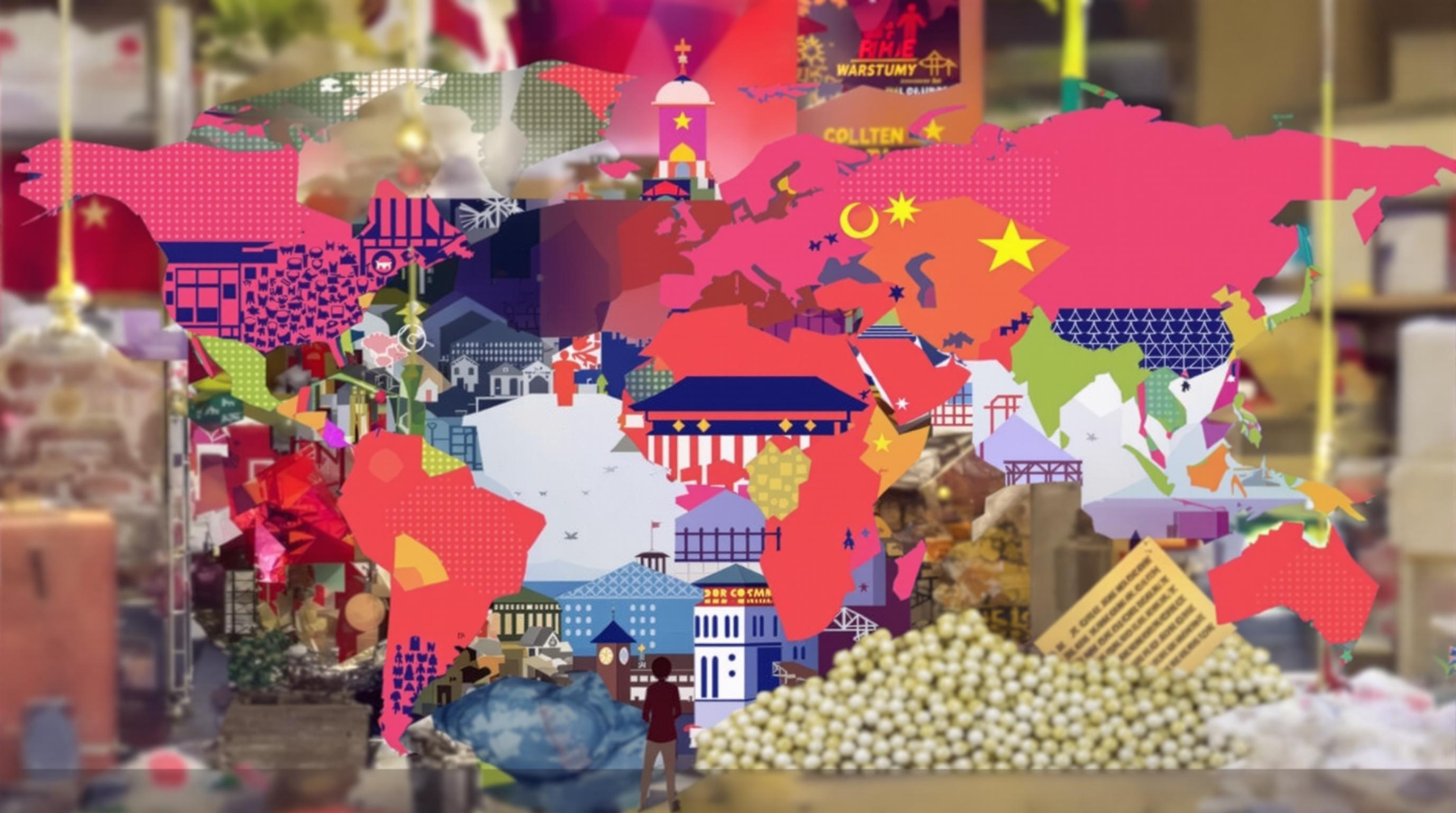Related Articles
- When Ancient Trade Routes Resurface: Unexpected Lessons for Modern Commerce and Global Economic Resilience
- When Artifacts Become Currencies: The Intriguing Trade Between Antiquities and Emerging Markets
- Beyond Borders: Unconventional Partnerships Transforming Trade Strategies in the Age of Globalization
- The Rise of Shadow Economies: How Informal Trade Networks are Disrupting Global Market Structures
- Cryptocurrency and Society: Understanding the Hidden Costs of Digital Assets on Community Well-Being
- The Surprising Role of Cultural Narratives in Shaping Investment Choices and Financial Preferences
The Rise of Shadow Economies: How Informal Trade Networks are Disrupting Global Market Structures
The Rise of Shadow Economies: How Informal Trade Networks are Disrupting Global Market Structures
The emergence of shadow economies is transforming the global marketplace, revealing the intricate and often hidden structures of informal trade networks. As governments and businesses grapple with the implications of this economic evolution, the challenges and opportunities presented by these underground systems offer a fascinating glimpse into the future of commerce.
The Many Faces of the Shadow Economy
The term "shadow economy" encompasses a variety of informal economic activities, ranging from unregistered businesses to barter systems and illicit trade. According to a report by the International Labour Organization (ILO), about 2 billion people globally (approximately 61% of the world's workforce) are employed in informal jobs across various sectors (ILO, 2020). Such staggering numbers highlight the significance of informal trade in contributing to livelihoods worldwide.
Why Do Shadow Economies Flourish?
The persistence of shadow economies can be attributed to several factors. High taxation, rigid regulations, and economic instability often push individuals and businesses to operate outside formal structures. For instance, in countries such as Nigeria and India, where the formal job market is volatile, informal trade becomes a viable alternative for millions of workers seeking economic security. A fascinating case study is the street vendors of Mexico City, who not only thrive despite bureaucratic hurdles but also contribute significantly to local economies.
Case Study: Mexico’s Informal Vendors
Take the bustling street markets of Mexico City as a prime example. Vendors sell everything from tacos to handmade crafts, sometimes evading licenses and permits. With an estimated 1.5 million people working as informal vendors, the street economy flourishes, providing a lifeline to many families. Moreover, these vendors add vitality to the local culture and economy—which would be dramatically less vibrant without them. Imagine a city without taco stands—an unthinkable scenario!
Bridging Gaps and Creating Opportunities
Despite the negative connotation typically associated with shadow economies, these informal networks often serve as essential lifelines in their communities. For example, in regions with high unemployment rates, informal trade can provide crucial financial support for families. In 2021, the World Bank reported that informal sector workers were pivotal in recovering from the economic downturn caused by the COVID-19 pandemic.
The Role of Technology in the Shadow Economy
Thinking about the rise of mobile payment apps like M-Pesa in Kenya? These innovations have significantly impacted informal trade by enabling secure transactions and enhancing trust among traders. As mobile technology becomes more pervasive, people are increasingly finding ways to formalize their businesses without being entirely absorbed into the traditional economy. An estimated 60% of the adult population in Kenya uses M-Pesa, allowing for previously unbanked people to engage in secure transactions. With this technology at their fingertips, informal traders can operate more efficiently and expand their customer base.
Global Implications: Shadow Economies Across Borders
The shadow economy is not confined to developing nations; it is a phenomenon that permeates markets worldwide. In Europe, it is estimated that informal economic activities account for roughly 12% of GDP (European Commission, 2020). Consider Italy: the country's flourishing black market for counterfeit luxury goods is estimated to be worth over €4 billion. Such underground activities raise questions about the integrity of global trade systems and challenge conventional notions of legality and commerce.
The Enforcement Puzzle
Governments face a daunting challenge when tackling the complexities of shadow economies. Traditional enforcement methods, such as cracking down on illegal businesses, often prove ineffective and can even exacerbate the situation. Instead, a more nuanced approach involving cooperation with informal traders may bear fruit. After all, who better to understand the intricacies of local markets than the traders themselves?
Turning the Tide: Should We Embrace the Shadow Economy?
As much as one might be tempted to dismiss shadow economies, they play an invaluable role in economic resilience. Policymakers should consider pragmatic solutions that could empower informal workers rather than attempting to eradicate them entirely. For example, integrating informal trade into broader economic systems could enhance tax revenues while providing protections for vulnerable populations. Imagine if local governments offered micro-loans or training programs to street vendors—this could equip them with the tools needed to transition into formal businesses, ultimately contributing to economic growth.
The Downside of the Shadow Economy
It’s essential to recognize that the shadow economy harbors significant risks. Informal workers often lack access to health care, social security, and safe working conditions. A report by the ILO in 2020 revealed that informal workers are three times more likely to experience workplace accidents compared to their formal counterparts. Furthermore, without proper regulation, consumers can be exposed to subpar products and services.
Understanding Cultural Context
Furthermore, in many cultures, business practices are rooted in relationships and trust rather than formal contracts or regulations. An investigation into the informal economy in West Africa reveals that many transactions are based on personal ties, which can ensure accountability despite a lack of formal agreements. The mutual reliance inherent in these systems can create a sense of community, fostering powerful support networks among traders.
The Future: Regulation or Relinquishment?
As we move forward, a critical debate looms: should we promote strict regulations on informal economies, or should we attempt to weave these vibrant networks into the fabric of our global economy? Take Norway, for instance, which has developed strategies to integrate informal workers into the formal labor market. By providing incentives for compliance while also recognizing the realities of informal work, Norway has managed to reduce the size of its shadow economy while fostering greater economic rapport among all classes.
Conversations Around the Kitchen Table
Let’s take a moment to imagine a casual family dinner. “Dad, what’s the deal with those vendors at the market?” your curious teenager might ask. What follows is a lively discussion exploring how these informal traders contribute to not just the family budget but also the local culture. Sharing stories about the street food enthusiastically consumed and the local crafts adorning the house can ignite curiosity about the broader implications of informal economies worldwide.
Final Thoughts: A New Economic Model?
The rise of shadow economies illustrates an evolving economic landscape characterized by resilience, adaptability, and rapid change. As we continue to navigate these complexities, a balanced approach that combines regulation with recognition of the strengths of informal trade networks will be essential. Emphasizing dialogue and understanding rather than confrontation may offer the best path forward, enabling us to fully leverage the potential of these informal systems while addressing their inherent challenges.
So, the next time you stroll through a bustling market or order tacos from a local vendor, consider the intricate web of economics that sustains these informal networks. Who knows? A taco might just serve as a tasty lesson on the resilience and creativity of people's ingenuity in the shadow economy.
Ultimately, the shadow economy isn't merely something to be understood; it's a dynamic force with the power to redefine how we view trade, employment, and economic justice in our interconnected world.
Sources:
International Labour Organization (2020)
European Commission (2020)
World Bank (2021)





